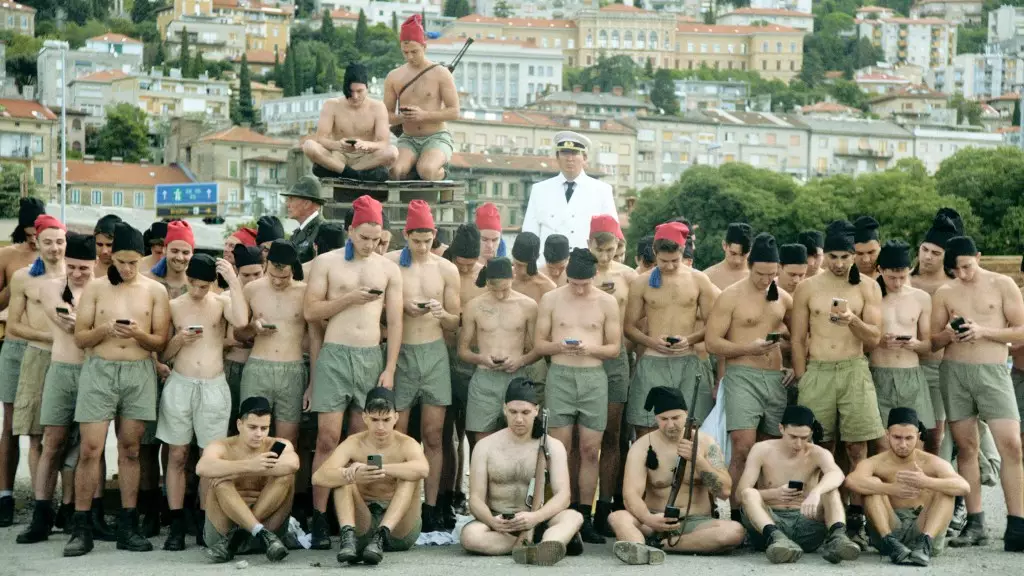Croatian filmmaker Igor Bezinović has made a significant mark on the documentary genre with his latest work, *Fiume o Morte!*, which intricately examines the controversial life of Italian poet and playwright Gabriele D’Annunzio. Receiving the prestigious Tiger Award at the International Film Festival Rotterdam (IFFR) as well as the FIPRESCI Award, the film adeptly melds dramatic reenactment with documentary footage, allowing viewers to delve into the historical and cultural contexts surrounding D’Annunzio’s life and motivations. Specifically, the documentary addresses his radical endeavors to incorporate the city of Fiume—present-day Rijeka in Croatia—into Italy, an act fueled by his vehement dissatisfaction with the post-World War I arrangements laid out at the Paris Peace Conference.
In a world where historical narratives often conflict with personal perspectives, *Fiume o Morte!* stands out by invoking a nuanced conversation about identity, nationalism, and the role of historical figures in shaping contemporary society. Bezinović meticulously weaves archival material with modern commentary, creating a dialogue that invites the audience to question both the past and its implications for today’s Europe. The film’s portrayal of D’Annunzio offers a multifaceted lens through which we can understand the rising tides of nationalism that pervade our current cultural milieu, making it both timely and provocative.
The selection of the Tiger Competition Jury, which included prominent figures such as Yuki Aditya and Winnie Lau, emphasized the documentary’s ability to invigorate historical discourse. Their summation captures the film’s essence, asserting that it uses people and public spaces as accomplices in unraveling a past that remains profoundly relevant.
One of the film’s most compelling aspects is its innovative storytelling approach that fuses artistic expression with factual history. By incorporating dramatic reconstructions alongside authentic documentary footage, Bezinović challenges the viewer to reconsider the boundaries between fact and fiction. This technique not only enhances engagement but also stimulates critical thinking about the narratives that define our understanding of history. The film’s playful grappling with the past allows it to transcend mere biography, posing larger questions about how we remember and interpret our collective experiences.
The success of *Fiume o Morte!* at the Rotterdam festival was paralleled by other noteworthy films that were recognized for their storytelling prowess. The two Tiger Special Jury Awards went to Sammy Baloji’s *L’arbre de l’authenticité* and Tim Ellrich’s *Im Haus meiner Eltern*, both of which highlight the festival’s focus on critical issues like colonialism and family dynamics. Baloji’s exploration of the Democratic Republic of Congo’s colonial legacy provides a poignant counterpoint to D’Annunzio’s imperial ambitions, illustrating how historical narratives are interwoven with the realities of contemporary life.
In the sidebar competition celebrating a blend of genres, Jon Blåhed’s *Raptures* took center stage with its gripping portrayal of a woman trapped in a dangerous sectarian movement. These films collectively reflect the festival’s commitment to highlighting pressing social themes, making the event a platform for diverse narratives.
The recognition of Varsha Bharath’s *Bad Girl* by the NETPAC jury underscores the rise of fresh voices in cinema, particularly from the Asia and Pacific regions. Bharath’s coming-of-age story of a rebellious teenager navigates the confines of wealth and conservatism, offering a distinctly different perspective compared to the predominantly Eurocentric narratives often observed in film festivals.
Ultimately, *Fiume o Morte!* and the other acclaimed works at IFFR exemplify the power of film as a medium for cultural exploration and social critique. As Bezinović’s documentary sheds light on D’Annunzio’s ambitions and their ramifications, it encourages audiences to reflect on the ever-pertinent themes of nationalism and identity. In a time when understanding history is more crucial than ever, this film posits that our collective narratives are not merely stories from the past, but living experiences that continue to shape our present and future.

